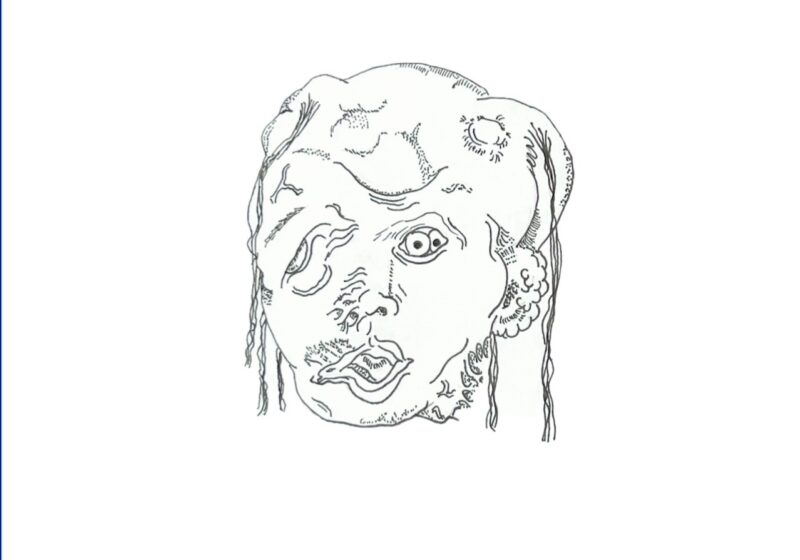On Friday, May 3, I sat with 20 students in the Students for Justice in Palestine (SJP) encampment to talk about a five-page excerpt I’d assigned from Martin Luther King’s Christian social protest masterpiece, “Letter from Birmingham Jail.” I’d been invited to the camp by several of my students, and Friday marked the ninth day of the camp’s existence on the main quad. And while it had dropped to 23 degrees just a couple of nights before, spirits were high when I entered. As of this writing on May 11, now 17 days in, spirits are still high and the focus of SJP’s demands — 1) that the University publicly back a cease-fire in the war in Gaza, 2) that the University divest in Israeli universities — has never been made with greater focus or conviction.
I was welcomed at the camp’s entrance by my student, D—. He showed me around, introducing me to a few protestors doing homework in camp chairs or in their tents. Immediately, I was struck by how well organized and tidy the encampment was. I know this sounds silly, but as a one-time Boy Scout, I’d learned an appreciation for such things, and here it was on immaculate display: a horseshoe of two dozen two-person tents, evenly spaced; a large dome tent in its center serving as a command post, and beside it, a high-ceiling canopy tent serving as a kitchen. The second thing I noticed was a detail well-beyond the vision and purview of the Boy Scouts of America: All the tents in the horseshoe were tied together, like knots in a string. If you were to try and rip one out, you would have to rip them all out. D— led me into the command tent and then to the kitchen where boxes and containers of dry goods and perishables were stacked around a long, narrow fold out table. On the table were a bunch of bananas. A lot of bananas.
“Want a banana?” D— asked.
“Yes,” I lied.
He gave me two, both very ripe.
“Co-op sent us over a ton of bananas. All visitors can’t leave without taking a banana.”
D— led me to a clearing where a dozen or so camp chairs were set up in a circle.
As we neared our start time at noon, the camp began to stir. Some students were grabbing food in the mess on their way to class; others were returning to camp from morning class. And then by noon, on the dot, 20 chairs were filled with students with Xeroxed copies in hand. The reason I’d asked them to read these few pages from King’s letter was pretty straightforward. I wanted to know if King’s methodology still made sense 60 years later. I introduced myself and thanked them for inviting me into camp. Then I asked if anybody had ever read King’s letter before, before I’d assigned it, and out of the 20, three had. What happened over the next hour in discussing King, in particular his four steps toward Direct Action, was extraordinary. Every student not only had something to say but had immediate examples of lived-experience with which to tie to King’s ideas. After all, SJP had been peacefully protesting the war, in various forms, since November.
The hour-long discussion was at turns intense, funny, smart, and provocative. I learned a ton about King from their reading of him. When they spoke about King’s ideas of “negotiation,” they spoke of the difficulty of trying to negotiate with an administration they felt was unprincipled. The paradox, they said, was this: How do you discuss an ethical situation with an entity that is thinking almost exclusively about money? When we talked about King’s ideas of “self-purification” — that is, could you absorb violence without inflicting it — several students updated the idea to include the challenge of “purifying your intellect” and “decolonizing your point of view.” They said it was about establishing an intelligence unafraid of questioning the assumed authority of western culture; they said King made sense because he too had to self-purify long-held notions of power that were toxic. And that this, in fact, had everything to do with the Gaza war: After all, one student said, Israel was clearly using Oct. 7 as a pretext to invade and expand Israel’s borders — a colonialist and imperialist act. When we got to King’s ideas of “direct action,” I told them what I believed — that the camp had been the most visible and effective thing SJP had done. I told them that my neighbors out in the suburbs knew about it and talked about it. Saw it on the news. To me it was powerful, I said, and at this moment a student to my left jumped in. She said that she was an engineering student, would graduate next year and certainly go directly into industry, but this, she said, this encampment is the thing she’s most proud of in her time at UR. I didn’t know UR students had this in them, she said, but it’s clear we do.
When our hour ended, I thanked the students again for inviting me in. I told them I had been teaching King for nearly 20 years and that today I had learned new things, important things, about his work, which was true. But the thing I learned that was most surprising, and in time, profound, I left unsaid. It was the fact that these students were here at all, on this quad, in this camp, acting in solidarity with the several hundred thousand Palestinians refugees who, because of the war, were now forced to live in tents. This didn’t feel like a UR thing. What I mean is student protests — especially solidarity movements — often derive from previous cultures and traditions that are already present in the institution. For example, when I was at the University of Wisconsin and the protests against the Iraq War swept me out of my third-floor apartment and onto the street, the history of Students for a Democratic Society was in everybody’s mouths. Stories of protest were a part of the fabric of the city. Later, when I was affiliated with Cornell University, the story of the Willard Straight Hall takeover wasn’t just a story we all knew, but had been the very action that gave rise to the spaces — the Clarke Africana Library in particular — I learned and taught and wrote in. But the University doesn’t have this history. Or if it does, it’s not in the air as it was in Madison or Ithaca, which is why the SJP protest is so striking: Here is a camp of future engineers and doctors, at least half of which are underrepresented minority students, deciding to do something that has never been done before, all in a unified voice.




